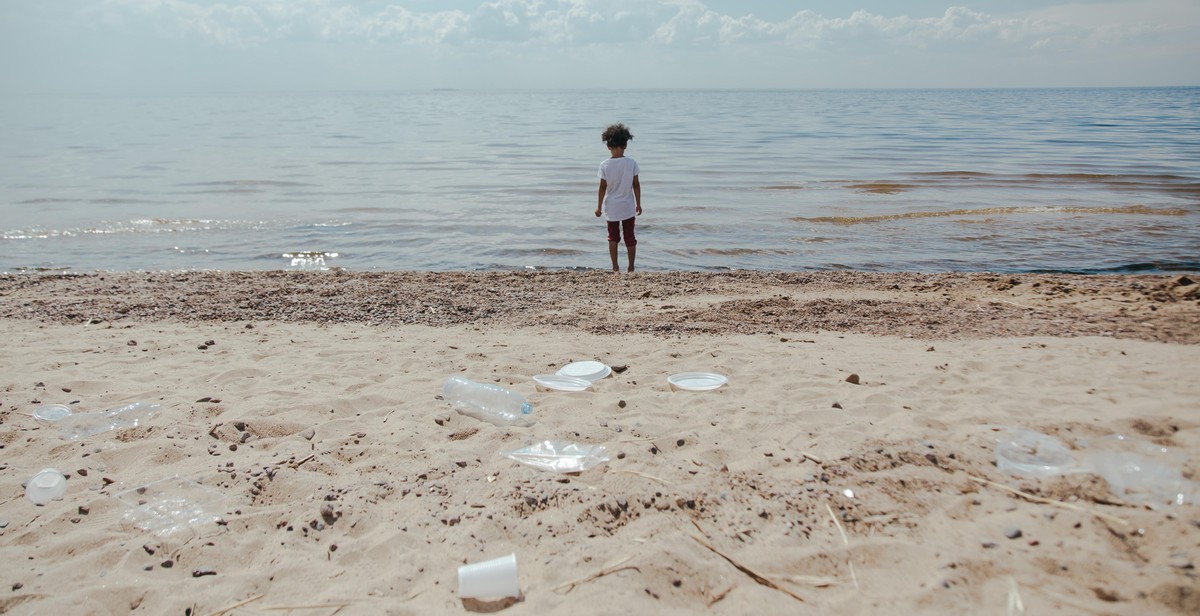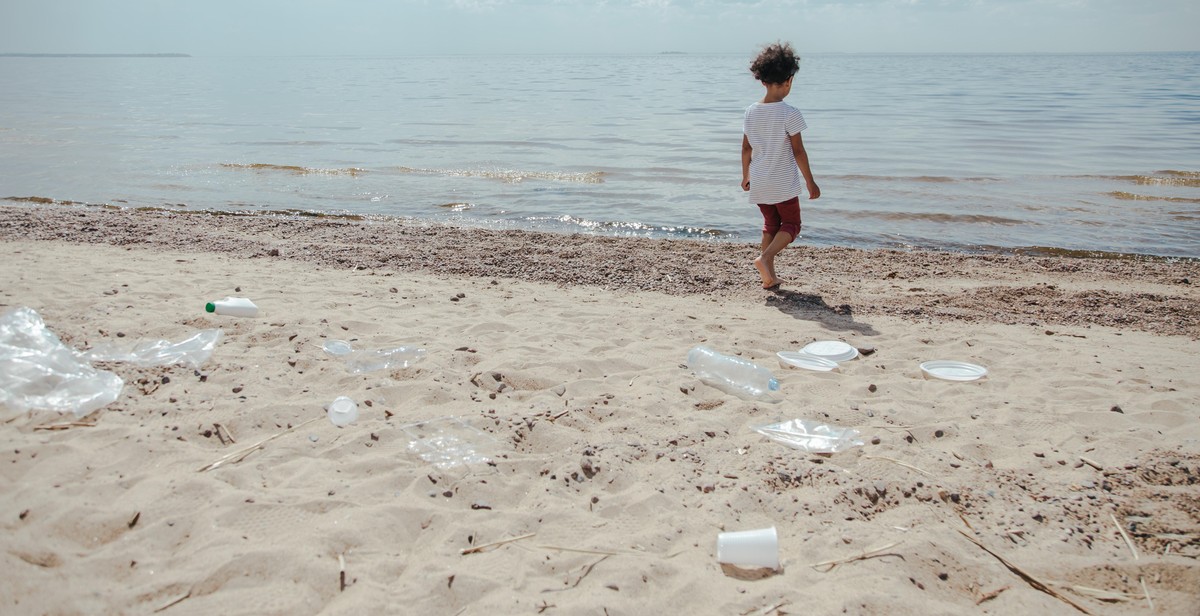The Effects of Pollution on the World’s Oceans
Oceans are the largest bodies of water on earth and they play a crucial role in maintaining the balance of the planet’s ecosystem. Unfortunately, they are also the most polluted. Pollution in the world’s oceans has become a major concern in recent years. The effects of pollution on the ocean can range from minor changes to catastrophic events that can have a lasting impact on the marine environment.
Types of Ocean Pollution
The most common types of ocean pollution include plastics, oil spills, chemical waste, and sewage. Plastics are a major problem as they do not biodegrade and can take hundreds of years to decompose. Oil spills can be devastating to marine life and can take years to clean up. Chemical waste can cause long-term damage to the ocean’s ecosystem, while sewage can cause harmful bacteria and viruses to flourish.
The Impact of Ocean Pollution
The impact of ocean pollution is far-reaching and affects both marine life and humans. Marine life can be harmed or killed by pollution, and the food chain can be disrupted. Humans can suffer from contaminated seafood, polluted beaches, and reduced tourism revenue. The economic impact of ocean pollution can be significant, with costs associated with cleanup efforts and lost revenue from fishing and tourism.
Conclusion
The effects of pollution on the world’s oceans are undeniable. It is important that we take action to reduce pollution and protect our oceans for future generations. By reducing our use of plastics, properly disposing of waste, and supporting efforts to clean up the ocean, we can make a difference in preserving this vital natural resource.

What is Ocean Pollution?
Ocean pollution refers to the contamination of the ocean and its surrounding water bodies with pollutants such as plastic waste, chemicals, and oil spills. It is a major environmental issue that affects marine life and ecosystems, as well as human health and the economy.
Sources of Ocean Pollution
There are various sources of ocean pollution, including:
- Industrial waste: Industries such as oil refineries, chemical plants, and manufacturing facilities often discharge toxic waste into nearby water bodies, which eventually finds its way into the ocean.
- Agricultural runoff: Fertilizers and pesticides used in agriculture can runoff into rivers and streams that flow into the ocean, causing pollution and harmful algal blooms.
- Sewage and wastewater: Untreated sewage and wastewater from households and industries can also pollute the ocean, leading to the spread of diseases and the death of marine life.
- Oil spills: Accidental oil spills from oil tankers and offshore drilling rigs can cause significant damage to marine ecosystems and lead to long-term pollution of the ocean.
- Plastic waste: Plastic waste such as bags, bottles, and straws are some of the most common pollutants found in the ocean. They can harm marine life that mistake them for food or become entangled in them.
Types of Ocean Pollution
The types of ocean pollution can be classified into three main categories:
- Chemical pollution: This type of pollution refers to the release of toxic chemicals into the ocean, either intentionally or unintentionally. These chemicals can harm marine life and humans who consume contaminated seafood. Examples of chemical pollutants include pesticides, heavy metals, and pharmaceuticals.
- Physical pollution: Physical ocean pollution refers to the presence of solid waste such as plastic, glass, and metal in the ocean. This waste can harm marine life and cause physical damage to their habitats. It can also affect the quality of seawater and make it unfit for human consumption or recreational activities.
- Biological pollution: Biological pollution occurs when invasive species, pathogens, and harmful algal blooms are introduced into the ocean. These organisms can cause harm to native species, disrupt ecosystems, and lead to economic losses for industries such as fisheries and tourism.
| Type of Pollution | Examples |
|---|---|
| Chemical Pollution | Pesticides, heavy metals, pharmaceuticals |
| Physical Pollution | Plastic waste, glass, metal |
| Biological Pollution | Invasive species, pathogens, harmful algal blooms |
Overall, ocean pollution is a serious problem that requires urgent attention and action. By reducing our reliance on single-use plastics, properly disposing of waste, and supporting environmentally friendly practices, we can help protect the ocean and its valuable ecosystems.

Impact of Ocean Pollution
Ocean pollution has a significant impact on marine life, human health, and the economy. Here are some of the effects of ocean pollution:
Marine Life
Marine life is severely affected by ocean pollution. The pollutants in the ocean can harm or kill marine animals, and the food chain is disrupted. Here are some of the impacts of ocean pollution on marine life:
- Plastic pollution in the ocean can entangle and suffocate marine animals, leading to their death.
- Toxic chemicals can accumulate in the tissues of marine animals, making them unsafe for human consumption.
- Oil spills can coat the feathers of birds and fur of marine mammals, making it difficult for them to regulate their body temperature and leading to hypothermia.
- Chemical pollutants can cause reproductive problems, developmental abnormalities, and mutations in marine animals.
Human Health
Ocean pollution has a direct impact on human health. The pollutants in the ocean can contaminate seafood and water, leading to various health problems. Here are some of the impacts of ocean pollution on human health:
- Mercury and other toxic chemicals in seafood can cause neurological problems, including memory loss and developmental delays in children.
- Bacterial contamination in water can cause gastrointestinal illnesses, including diarrhea and vomiting.
- Chemical pollutants can cause skin irritations, respiratory problems, and cancer.
Economic Impact
Ocean pollution has a significant economic impact. The damage caused by ocean pollution can lead to losses in tourism and fishing industries. Here are some of the impacts of ocean pollution on the economy:
- Beaches and coastal areas contaminated with pollutants can deter tourists, leading to a decrease in revenue for local businesses.
- Contamination of seafood can lead to a decrease in demand, causing losses for the fishing industry.
- Cleanup and restoration efforts can be costly for governments and businesses.
| Industry | Cost of Pollution (in billions of dollars) |
|---|---|
| Tourism | 7.6 |
| Fishing | 2.4 |
| Shipping | 13.2 |
| Coastal Development | 5.5 |
Overall, ocean pollution has far-reaching impacts on the environment, human health, and the economy. It is essential to take action to prevent further pollution and promote the health of our oceans.

Solutions to Ocean Pollution
The effects of ocean pollution are devastating and it is important that we take urgent action to address this issue. Below are some of the solutions that can help reduce ocean pollution:
Individual Actions
Every individual can play a crucial role in reducing ocean pollution. Here are some ways individuals can make a difference:
- Reduce, reuse and recycle: Proper waste disposal and recycling can go a long way in reducing the amount of plastic and other wastes that end up in the ocean.
- Avoid single-use plastic: Simple actions like using reusable bags, water bottles, and utensils can significantly reduce plastic waste.
- Participate in beach cleanups: Joining beach cleanup activities can help remove trash from the shorelines and prevent them from entering the ocean.
- Be mindful of your seafood consumption: Choose sustainable seafood options and avoid consuming endangered species.
Government Actions
Governments can play a crucial role in reducing ocean pollution. Here are some ways governments can take action:
- Enforce environmental regulations: Governments can enforce strict environmental regulations to prevent industries from polluting the ocean.
- Invest in wastewater treatment: Proper treatment of wastewater can significantly reduce the amount of pollutants that enter the ocean.
- Support ocean conservation efforts: Governments can allocate funds to support ocean conservation programs and research.
- Monitor and regulate fishing activities: Governments can regulate fishing activities to prevent overfishing and protect endangered species.
Industry Actions
Industries can also take action to reduce ocean pollution. Here are some ways industries can make a difference:
- Reduce packaging waste: Industries can reduce the amount of packaging waste they produce by using eco-friendly packaging materials.
- Proper disposal of industrial waste: Industries can properly dispose of their waste to prevent it from entering the ocean.
- Invest in green technology: Investing in green technology can help reduce pollution from industrial activities.
- Support ocean conservation efforts: Industries can support ocean conservation efforts by funding research and participating in cleanup activities.
| Individual Actions | Government Actions | Industry Actions |
|---|---|---|
| Reduce, reuse and recycle | Enforce environmental regulations | Reduce packaging waste |
| Avoid single-use plastic | Invest in wastewater treatment | Proper disposal of industrial waste |
| Participate in beach cleanups | Support ocean conservation efforts | Invest in green technology |
| Be mindful of your seafood consumption | Monitor and regulate fishing activities | Support ocean conservation efforts |
